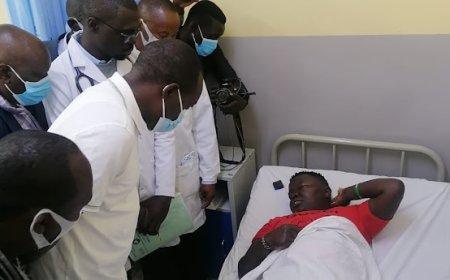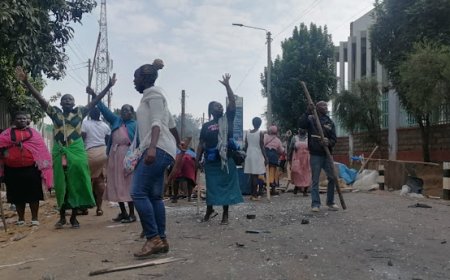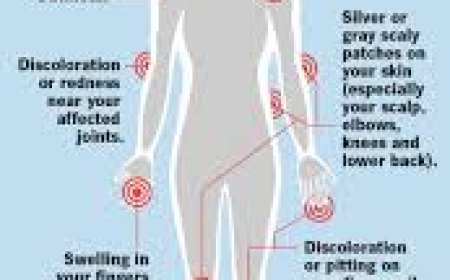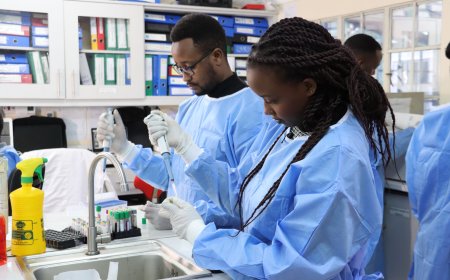HEALTHCARE TRENDS THAT WILL AFFECT KENYA AND AFRICA IN 2024
With estimates pointing to 56% of Africans lacking access to high-quality healthcare, technological advancements like artificial intelligence (AI), data management, and connectivity that enhance medical outcomes present a significant chance to overcome obstacles that have persisted for decades.

Stakeholders in the health sector from all across Africa and the world will come together for the World Future Health Africa Summit, which takes place in Marrakech, Morocco, from May 29 to May 31.
The conference will provide insight into a few of the trends that are anticipated to influence the health sector on the continent in 2024 and beyond.
With estimates pointing to 56% of Africans lacking access to high-quality healthcare, technological advancements like artificial intelligence (AI), data management, and connectivity that enhance medical outcomes present a significant chance to overcome obstacles that have persisted for decades.
With digital solutions predicted to give access to healthcare to up to 400 million additional Africans, researchers believe that Africa's focus on digital health has the potential to provide more accessible and inexpensive healthcare to the 1.5 billion people living on the continent.
I'd want to concentrate on six trends that will be a major topic of debate in Marrakech, even though many more are anticipated as the continent rapidly moves toward digital health.
The capacity to offer telehealth is the first. 45% of Africa's population may receive medical consultations remotely because of telemedicine, according to the World Health Organization (WHO).
Gertrude’s Hospital Foundation introduced Daktari Smart, a telemedicine platform, in 2021, realizing the vital role technology can play in closing the gap between doctors and patients. In the initiative, we diagnose and treat underprivileged children from around the nation using cutting-edge techniques and technology.
The second anticipated development is patient self-care, where people will have the means to monitor their health and take charge of their well-being.
The WHO defines self-care as the capacity of people, families, and communities to support, maintain, and advance health as well as manage illness and disability with or without the help of a health provider.
MHealth Africa reports that hospital visits can be reduced by as much as 47% with mobile health applications. The World Health Organization (WHO) considers self-care to be essential to reaching universal health coverage, improving health, maintaining global security, and helping the most vulnerable.
The third trend is a rise in the use of automation and robotics. The African Journal of Biomedical Research claims that automation and robotics can reduce human error and enhance surgical precision, resulting in a 20% reduction in operating time.
To help with the management of the COVID-19 pandemic locally, the United Nations Development Programme (UNDP) and the Ministry of Health collaborated to prototype intelligent anti-epidemic robotic solutions in 2021.
It was anticipated that the introduction of robots into Kenya's healthcare system would enhance infection control, stop the spread of infections, and facilitate the storage of large data to enable readiness and decision-making, flattening the infection curve.
Fourth, the use of AI in healthcare is anticipated to grow quickly across the continent. This technology will help doctors with patient needs prediction, treatment planning, and diagnosis. This will aid in disease identification with a 90% accuracy rate, claims the African Health Tech Review.
In addition, the WHO noted in a report from 2021 that AI is being used to enhance clinical care by accelerating and improving the accuracy of disease diagnosis and screening. This will support a range of public health interventions, including disease surveillance, outbreak response, and health systems management, as well as bolstering medical research and drug development.
The fifth trend is the usage of data that is paperless. According to research by Health Informatics in Africa, electronic health records can increase diagnosis accuracy by 40%, and paperless data can simplify data access, reduce errors, and speed up procedures.
The recently passed Digital Health Act in Kenya mandates that public hospitals convert to digital records only and stop using paper records. It is anticipated that the creation of a consolidated data system will facilitate better access to medical records for the advantage of patients and healthcare professionals.
The sixth and last trend is decision intelligence, which Africa Health IT News predicts would enhance clinical decision-making with insights from data and enhance patient outcomes by 35 percent. Global professional services company GenPact continues, "Decision intelligence in health enhances member and patient experiences, lowers costs and increases revenue, and simplifies operations."
What's Your Reaction?

























































